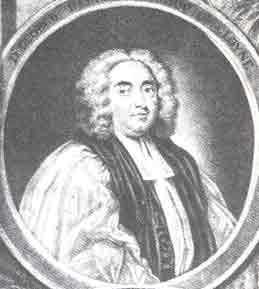People
Philosophers
George Berkeley (1685-1753)
George (Bishop) Berkeley (1685-1753) [John Locke]. Anglo-Irish philosopher and clergyman, born in Dysert Castle, near Thomastown, Ireland. He attended Trinity College, Dublin completing a masters degree in 1707.
Though born in Ireland, Berkeley was very much an American philosopher. While it was in Ireland that Berkeley had his initial insights into the ideality of the objects of perception, his greatest philosophic insights and the most important projects of his life aimed at applying his principles (including his project to found a utopian society in Bermuda and his medical enterprises) began only with his trip to America.
Berkeley theorised that the objects we perceive exist precisely as they appear to the senses. Objective knowledge is possible because the perceived object is the only object that exists. There is no "real" object which is the substratum of the perceived object. There is no "real" object (no matter) "behind" the object as we perceive it, which "causes" our perceptions. All that exists is the object as we perceive it, and this is the real object.
Theologically, one consequence of Berkeley's views is that they require God to be present as an immediate cause of all our experiences. God is not the distant engineer of Newtonian machinery that in the fullness of time led to the growth of a tree in the university's quadrangle. Rather, my perception of the tree is an idea that God's mind has produced in mine, and the tree continue to exist in the Quad when "nobody" is there simply because God is always there.
The philosophy of David Hume [People] concerning causality and objectivity is an elaboration of another aspect of Berkeley's philosophy. Immanuel Kant [People] mischaracterized Berkeley as a radical idealist and falsely claimed that Berkeley's principles make objective knowledge impossible. As Berkeley's thought progressed, he more or less completely assimilated his theories to those of Plato [People]. The only modern philosophers who adequately appreciated and applied Berkeley's principles were Hume and Arthur Schopenhauer [People].
George (Bishop) Berkeley (1685-1753)

04-22-2004